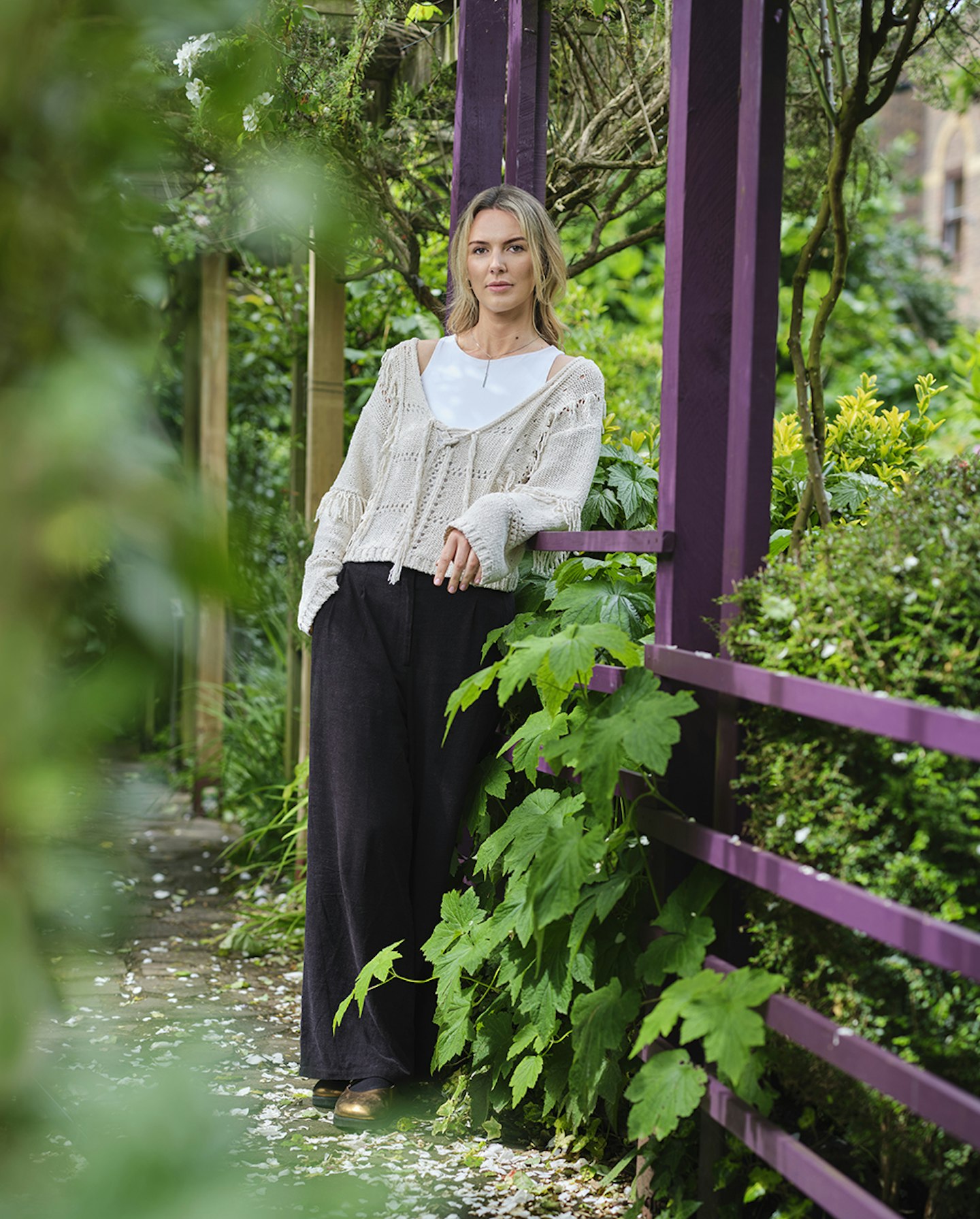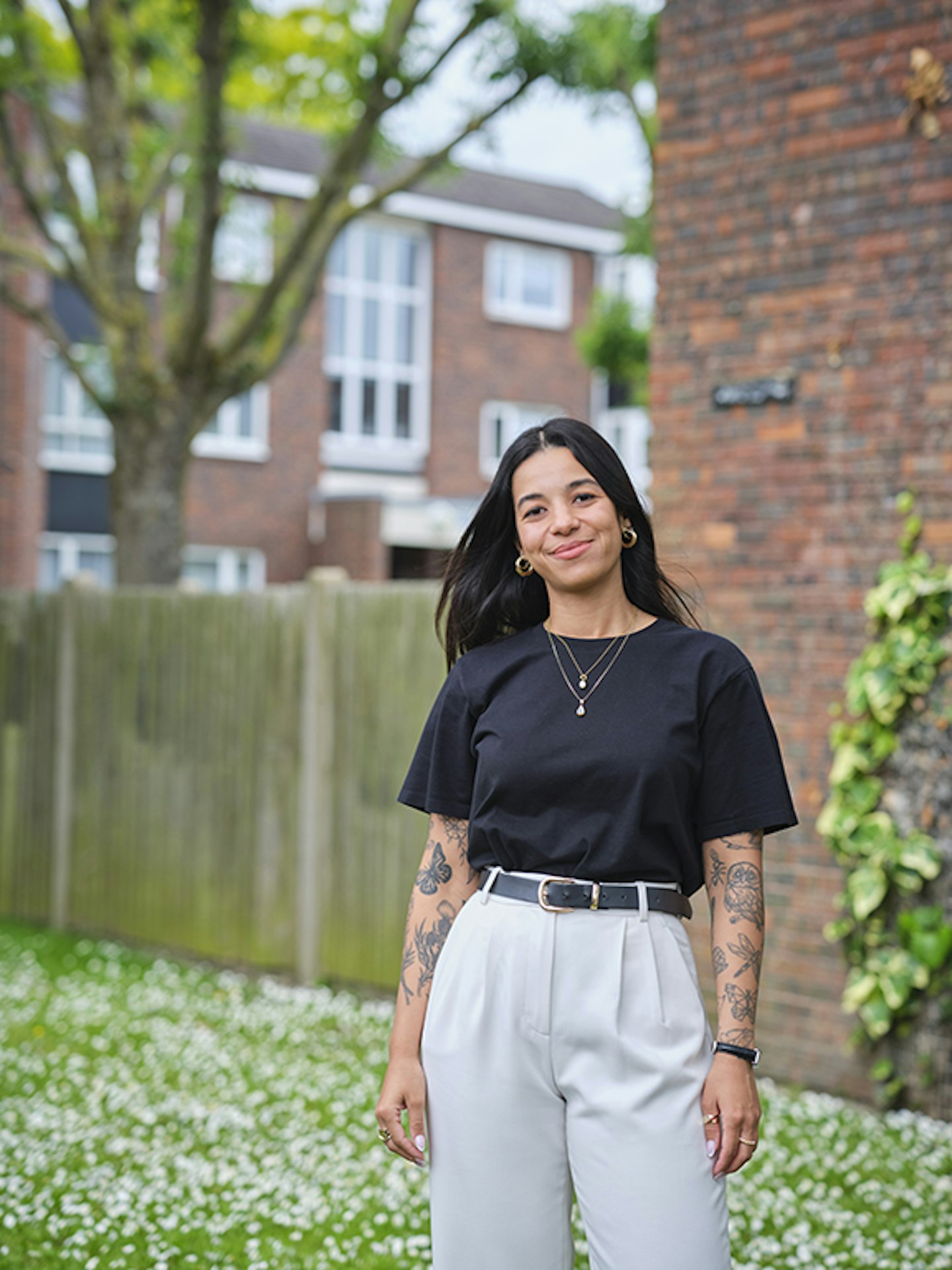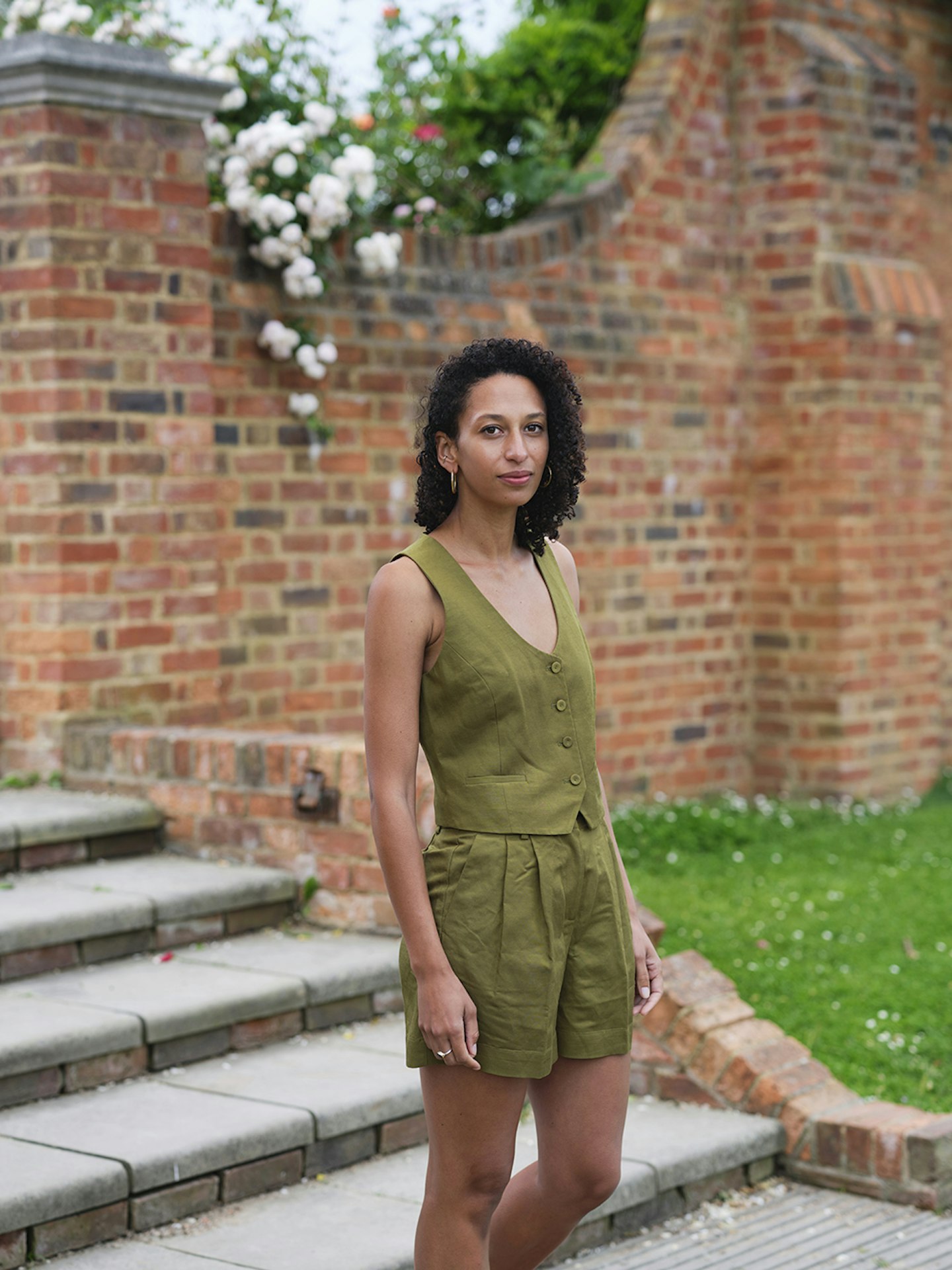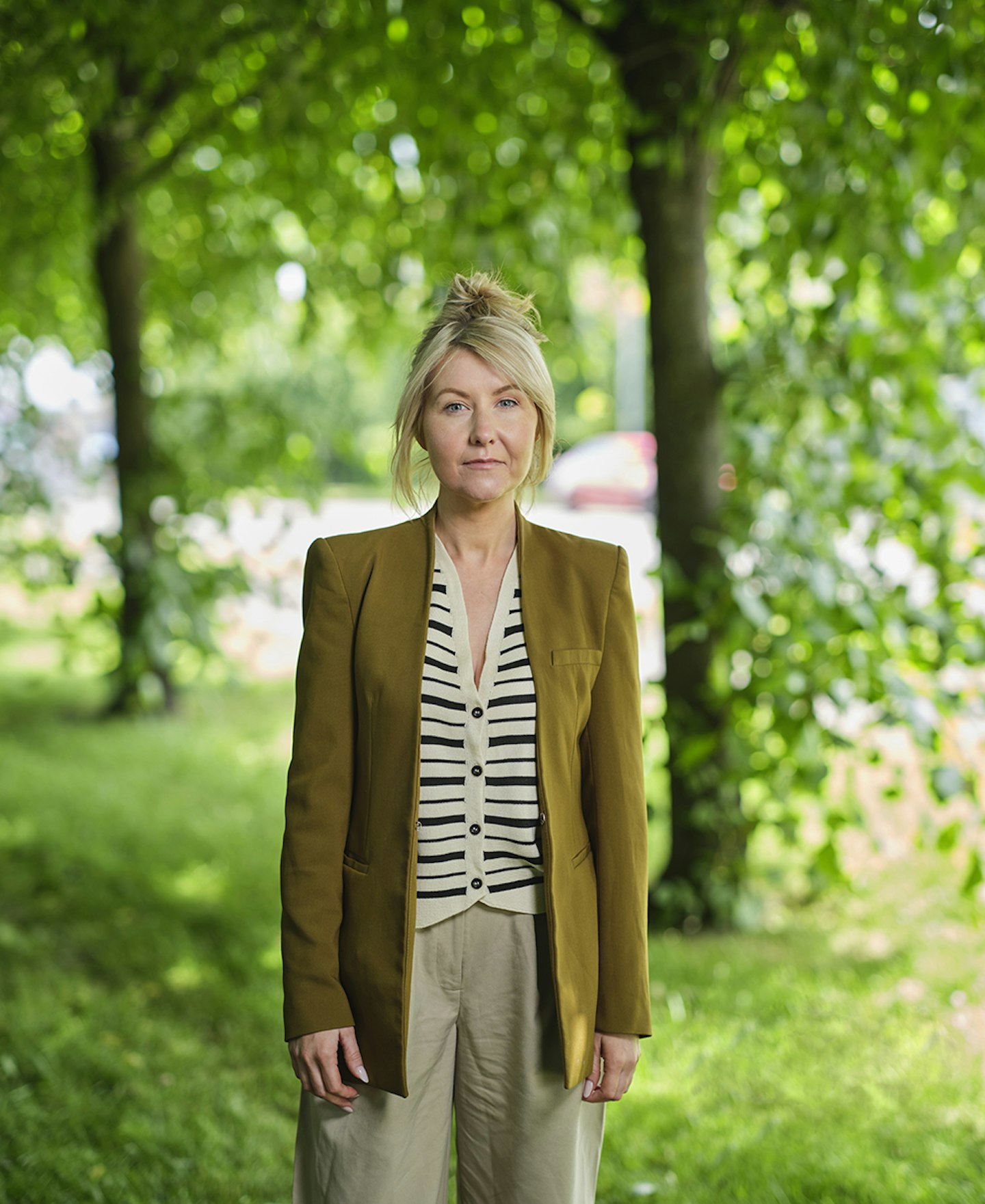Over the last 14 years there have been five Prime Ministers, five general elections (including this one) an EU referendum that divided the country, a pandemic and devastating global conflicts that have reverberated at home. In the last two years alone we’ve seen the economy shatter, the cost of living soar and rents and mortgages become unaffordable almost overnight. The uncertainty of the modern world has left many feeling they have no sense of security.
Amid all this, women have been getting on with their lives. While debates around tax, crime, immigration and culture wars rage, it’s not what the women we spoke to worry about the most. They want to live in a country where a single woman on a decent salary doesn’t need a partner to get on the housing ladder; they want a health service that is adequately funded so you can rely on it in a crisis. They crave stability, a childcare system that works and an end to divisive rhetoric, and they’re frustrated that climate issues aren’t front and centre.
Their concerns reflect a potential disconnect between what we see on TV and how some of us actually feel. Labour may be soaring in the polls but there’s still a sense of disillusionment among many. A recent report by elections guru Prof Sir John Curtice found trust and confidence in the UK’s political and electoral system have never been lower. Speaking to women on the streets there is a common sentiment about politicians: ‘You can’t trust any of them.’
Although talk of the ‘women’s vote’ makes us sound like one homogeneous group, we each have personal stories that form part of how we feel and who we are. No stat, survey or headline can tell you this. We sat down with four female voters to find out what’s most important to them this election.
Jo Llewellyn - Researcher, 32, Leeds: 'I want reassurance that the NHS won't crumble'

The day I started at Leeds University in 2012 my dad was diagnosed with terminal cancer. In hospital, doctors drew the curtains and quietly told us they couldn’t cure him. We knew we didn’t have long. I was still living at home and decided I’d be his carer. For a while I juggled it with university, but with no other family around I dropped out to focus on looking after him. Macmillan Cancer Support offered help, but I wanted to care for him myself. He died the following year.
The NHS is meant to be there for us from cradle to grave, as the post-war motto goes. It touches everyone at some point and is the backbone of this country. But more recently I’ve watched as spending cuts and privatisation by stealth have worn it down. My dad received great care, but it was clear then that the NHS workers had no capacity to give any more than they already were. What was lacking was time with professionals who could really explain what was happening. There was always an atmosphere of busyness; always a next appointment they needed to rush to.
The moments of compassion you experience stay with you. I’ll never forget something a nurse said to me when my dad was in a hospice at the very end. Friends were visiting to say their goodbyes and my dad would switch to the charming man he always used to be. But I’d get the man who, understandably, was sad and drained of energy. This nurse said to me, ‘You do know he loves you more than anyone else in this world, don’t you? That’s why he’s treating you this way.
You can’t put a price on those softer connections that NHS staff build in harrowing circumstances. Where politicians are going wrong is treating these workers as martyrs. They shouldn’t have to carry out gruelling tasks without being adequately compensated. We thank them, but the thanks that really matters is having manageable workloads and fair pay.
Since my dad died I’ve seen how the NHS is sometimes barely meeting people’s basic needs. I wonder how his care would be today. Would he be left to languish on never-ending waiting lists?
The recent proposals for trans people to be treated in separate rooms in hospitals are also upsetting. I’m proudly with someone non-binary and believe healthcare should be inclusive regardless of how people identify.
This election, I’m searching for reassurance that the service that cared for my dad will not only still be standing in 10 years’ time, but respected and nourished enough so it can help others to thrive. After losing my dad, my partner is now the most important person to me. I need to know that if they needed NHS care, it would be there for them in the same way it was for my dad and me 12 years ago.
Nehir Glean - Producer, 30, South London: 'I shouldn't need a husband to own a home'

The reality of how hard it would be to buy a house on my own hit me during a meeting with a mortgage advisor. She strongly suggested that I, a single woman, would never be able to get on the housing ladder so I might as well give up. I left stunned. I earn a decent salary and I’m able to save half of it each month. But this advisor essentially laughed me out of the bank. Afterwards, I sat on a park bench to calm my breathing and blot my tears with my sleeve. I couldn’t eat or drink that afternoon because of the pit in my stomach, so I sat there people-watching and feeling pangs of envy for couples and the elderly, who I told myself didn’t have it this hard.
The magnitude of her message felt overwhelming: it didn’t matter how hard I work or save, if I don’t have a partner I might as well forget about it. If you don’t come from generational wealth and you haven’t got help from the bank of mum and dad and you don’t have a dual income with a partner, the house-buying gravy train is practically impossible.
I decided I wouldn’t give up, but a lot of my peers are losing hope and resigning themselves to a lifetime of renting, rather than saving for something potentially unreachable. I rent and share with five other people, all aged from their mid-twenties to 30. It’s not ideal but sharing a home makes saving for a deposit possible.
All of my friends with houses are coupled up. Being single, I feel doubly penalised: it feels as though banks are more reluctant to lend when it’s just you. I know of people who’ve fast-tracked relationships because it’s convenient for getting on the housing ladder. Among my peers, this lack of hope over buying a house even affects the way they work: what’s the point of climbing the career ladder if it won’t bring you closer to your ultimate goal?
What’s infuriating is that the leaders of today don’t seem to acknowledge this in a way that makes young people feel listened to. In terms of voting, it’s made me feel apathetic. I won’t feel reassured until I hear a political leader talk about housing in a meaningful way. But I’m an optimist: I like to think someone is going to fix this eventually. This election could be that chance.
Jessica Hill - Film and TV Executive, 36, North London: 'I want to raise my child in a compassionate society'

My son was born in September 2022, the day of the Queen’s funeral. The hospital was eerily quiet because it was a bank holiday. Earlier that month, Liz Truss had become PM, which kicked off the most bizarre news cycle. Throughout all this, I was in a newborn haze, cocooned from reality, but, occasionally, when I was scrolling through the night during bleary-eyed feeds, the real world would come into sharper focus and I’d think: another Prime Minister? What on earth is happening?
So much happened in such a short space of time that it was frightening. In my early pregnancy, Russia invaded Ukraine and we were coming out of the pandemic, where I’d felt frustration at how the Government had handled things. In order to keep a positive mindset during my pregnancy I had to tune out of the news, which didn’t sit right as I’ve always been politically engaged.
I thought very hard about the world I was bringing my child into. Would there still be a cost of living crisis? Would we be able to buy a house in an area where we wanted to live? For many, the pandemic demonstrated how unstable certain industries are. I work in film and TV, so my industry was hit particularly hard. And today the cost of childcare makes me question whether I could grow my family.
But what unsettled me more than the backdrop of war, chaos and instability was the question of how compassionate a society my son was born into. What values do we foster? How do we talk about immigration? My hope is that we come to a more considered place, where I respect the people in charge. Since Brexit, the outright hatred and divisive language we’ve heard undermines everyone’s sense of connection and community. As a woman of colour I’ve never taken safety for granted.
It doesn’t feel as though the current way of things is working, so the prospect of change is really exciting. While I have some questions about a new Government, I need to feel like we’re being led by people who understand ordinary people’s lives and who have the moral imperative to speak about everybody in a humane way. Finally, there’s talk of funded childcare hours and free breakfast clubs from the major parties, which makes me sigh with relief that working parents are going to start feeling more welcome in society. Instead of being distracted by divisive conversations, we need to create a positive environment so everybody feels welcome. That’s the country in which I want to raise my son.
Sarah Jane Hamilton - Climate Scientist, 36, Glasgow: 'Global warming makes me worry for the future'

I grew up in the rural outskirts of Glasgow and one of my favourite things to do as a child was to play out in nature. But when I watch my outdoorsy nine-year-old son playing in the countryside I feel guilty and worry about how his future will look. We’re running out of time before we reach a threshold where global warming will exceed a safe level. We can’t leave that for the next generation.
It might sound abstract, but when there’s extreme heat it impacts our ability to grow food, it impacts immigration with people having to move because the country they live in is no longer habitable, and it impacts the availability of water and whether there will be enough to sustain crops. I worry about him having the sort of life people my age or older have taken for granted and having the food and water to survive. Knowing what I know can feel like a burden, because I worry there isn’t enough being done to tackle the climate challenges we face in the future.
There might have been advancements in harnessing the power of the sun by the time he’s grown up but it’s so unpredictable, so it’s about taking onus now as opposed to hoping for technological developments and putting it all on the next generation. We know we can be more sustainable when it comes to the likes of electric cars, heating our homes and reducing how much we fly. But more attention is needed around how we are actually going to move away from fossil fuels, because they factor in everything, from our mobile phones to our toiletries and medicines. Not a single political party has spoken about this because it’s going to be such a challenge.
This election there’s not enough being proposed when it comes to new policy. There were ambitious targets set at COP26 but a big rollback on climate commitments since. A lot of what I hear suggests the main political parties are divided on this area. It needs cohesion and action now. The political landscape is hugely important because a lot of people look to leaders for guidance and funding. Instead, the climate crisis and energy transition is dividing people as particular parties deny climate change is even a problem. It’s challenging for people in my area of work who are urgently trying to get crucial information out there, but there’s no way we’ll give up. We have the knowledge now, we just need to turn it into power so change can happen fast.
